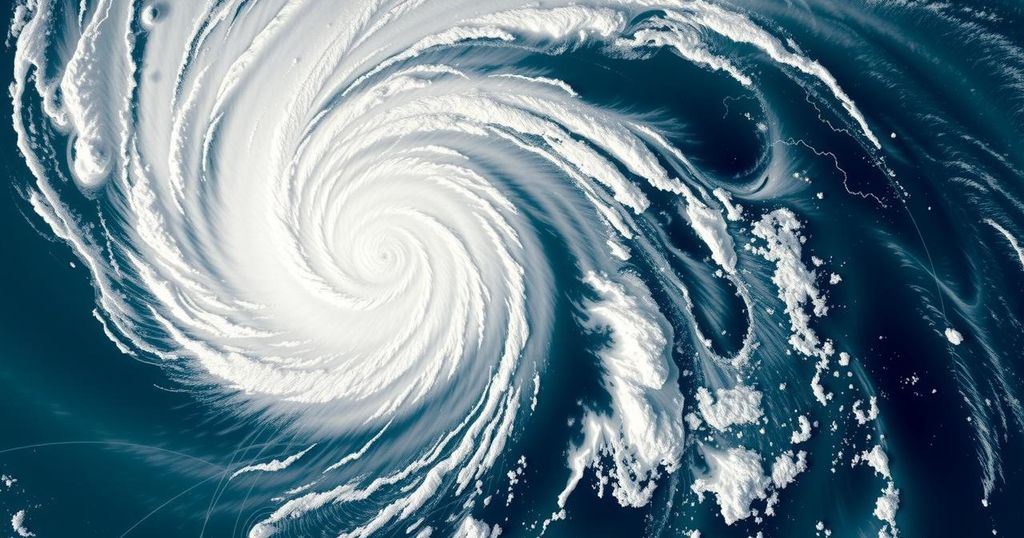Severe Destruction from Tropical Cyclone Chido Hits Mayotte and Eastern Africa
Tropical Cyclone Chido has inflicted severe damage in Mayotte as it approaches eastern Africa, with winds exceeding 220 km/h causing widespread destruction. Though there are no immediate reports of casualties, thousands are without power, and rescue operations are underway. Chido is expected to impact Mozambique next, threatening millions. This cyclone reflects the increasing severity of such weather events linked to climate change, emphasizing the need for disaster preparedness in vulnerable regions.
Tropical Cyclone Chido has caused severe destruction across Mayotte, the French territory located in the Indian Ocean, as it continues its path toward eastern Africa. Officials reported wind speeds exceeding 220 kilometers per hour, leading to widespread roof damage across the islands, which house a population of over 300,000. Fortunately, there are no immediate reports of casualties. Mayotte Prefect Francois-Xavier Bieuville described the cyclone as the most violent to strike since 1934.
In a recent Facebook statement, Prefect Bieuville remarked, “Our island is being hit by the most violent and destructive cyclone since 1934. Many of us have lost everything.” He also mentioned that the highest alert level had been lifted to enable rescue operations following the cyclone’s wrath. Nevertheless, residents remain under a red alert and are urged to stay sheltered.
French Interior Minister Bruno Retailleau highlighted the extensive damage, stating, “The damages already appear to be extensive.” In response, the French government has dispatched aid, deploying 110 rescuers and firefighters and planning to send an additional 140 personnel. Reports indicate that thousands of homes are without power, and physical debris has littered the landscape.
Chido is affecting the neighboring islands of Comoros, where authorities are also under red alert and are concerned for 11 fishermen who disappeared at sea. The Comoros government has formally closed its airport, ordered ships to remain in harbor, and instructed schools to suspend classes for preparations against the cyclone.
Forecasters anticipate Chido to make landfall in Mozambique late Saturday or early Sunday, potentially impacting up to 2.5 million people in Northern Mozambique, specifically in the Cabo Delgado and Nampula provinces. Furthermore, preparations are underway in Malawi and Zimbabwe, where authorities are wary of flooding and possible evacuations. Cyclone season in the southeastern Indian Ocean typically lasts from December through March, and recent years have seen an increase in cyclone intensity due to climate change, exposing vulnerable nations to humanitarian crises despite their minimal contributions to the climate crisis itself.
Tropical cyclones are common in the Indian Ocean region, particularly during the cyclone season from December to March. Cyclones often lead to devastating humanitarian crises, especially in less resilient nations such as those in southern Africa. The increasing frequency and severity of cyclones, attributed to climate change, have raised alarming concerns about the capacity of affected regions to adequately respond and recover. Historical cyclones like Idai and Freddy illustrate the potential impacts, with significant loss of life and extensive damage to infrastructure, necessitating urgent response measures.
Tropical Cyclone Chido has wreaked havoc on Mayotte and is poised to impact eastern Africa significantly. While immediate damage assessments are underway, the long-term effects of such disasters, especially in light of climate change, underscore the urgent need for robust disaster preparedness and humanitarian support for vulnerable nations. As these regions brace for escalating cyclone threats, understanding and addressing the roots of climate change will be critical in mitigating future crises.
Original Source: www.voanews.com




Post Comment